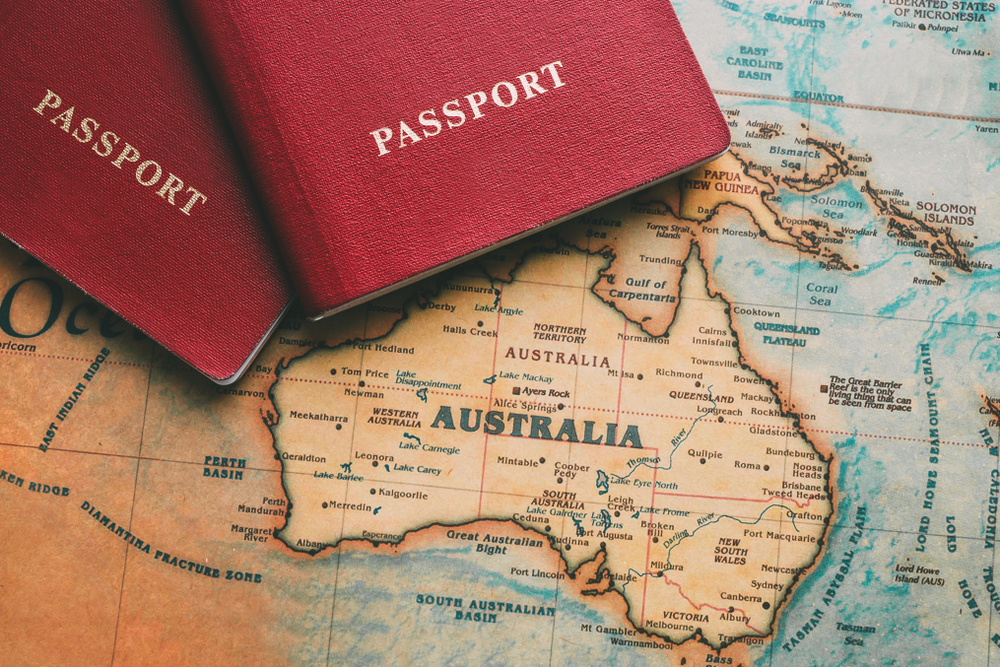What’s new in global immigration?
This week, the Global Immigration team at Smith Stone Walters would like to highlight the following recent updates from Canada, Denmark, Malaysia and the United States.
Canada: Temporary freeze of low-wage occupations in Montréal under Temporary Foreign Worker Program
On 20 August 2024, the Canadian government announced the approval of a proposal by the Government of Quebec to temporarily refuse to process new Labour Market Impact Assessment (LMIA) applications for the TFW Program low-wage stream in the Montréal economic region. As a result, processing of these applications will be suspended for six months, starting on 3 September 2024, for job offers located in the Montréal economic region with wages below CAD 27.47/hour, which is the current Quebec median hourly wage.
The economic region of Montréal includes the following municipalities: Baie-d’Urfé; Beaconsfield; Côte-Saint-Luc; Dollard-des-Ormeaux; Dorval; Hampstead; Kirkland; L’Île-Dorval; Montréal; Montréal East; Montréal West; Mount Royal; Pointe-Claire; Sainte-Anne-de-Bellevue; Senneville; and Westmount.
This processing suspension applies to all LMIA applications, including those submitted under the facilitated processing.
There are some exceptions to the processing suspension, including jobs in a place of work located outside the economic region of Montréal; jobs with an offered wage equal to or higher than the current median hourly wage in Quebec (CAD 27.47/hour); and LMIA applications received prior to 3 September 2024. Additionally, employers applying for LMIA positions from certain industry groups in the North American Industry Classification System will also be exempted, including those in agriculture, construction, food processing, education, and health and social services sectors.
The government will closely monitor this policy as it makes determinations about future changes to the Temporary Foreign Worker Program.
Canada: New pilot program for French-speaking foreign students
Immigration, Refugees and Citizenship Canada (IRCC) has announced that the new Francophone Minority Communities Student Pilot (FMCSP) program will be launched on 26 August 2024, in partnership with designated French-language and bilingual post-secondary learning institutions (DLIs).
The pilot program is a flagship measure of the Policy on Francophone Immigration announced earlier this year and will benefit francophone minority communities (FMCs) by helping them attract and retain international students.
To improve the approval rate, students and their families will be exempted from having to demonstrate that they will leave Canada at the end of their temporary stay. In addition, the required financial threshold will be adjusted to reflect 75% of the low-income cut-off associated with the municipality where the institution’s main campus is located.
The spouses or common-law partners of the principal applicants may also come to Canada under the pilot program and eventually apply for permanent residence.
Pilot program participants will also benefit from a direct pathway from temporary to permanent status after obtaining their diploma, and they will have access to settlement services while they’re studying to help them integrate successfully into their communities.
Although an annual cap for most study permit applications was established on 22 January 2024, the FMCSP is not included in the overall cap. Each participating DLI will be allocated a limited number of acceptance letters that can be issued for the purpose of processing study permits under the pilot program.
The maximum number of study permit applications that Immigration, Refugees and Citizenship Canada (IRCC) will accept under the pilot program is 2300 for the first year. A cap for the second year of the pilot program will be set by August 2025.
Denmark: Working holiday quotas for citizens of Argentina and Chile
The Danish Agency for International Recruitment and Integration (SIRI) has announced that, on 1 September 2024, a new Working Holiday quota period begins for citizens of Chile and Argentina. VFS Buenos Aires, Argentina and VFS Santiago, Chile open for appointments on 2 September 2024 at 9:00am local time (UTC -4).
Citizens of Chile and Argentina have an annual quota of 150 Working Holiday residence permits. The quota year runs from March of a given year up to and including February of the following year.
From March up to and including August (first quota period), SIRI can issue residence permits corresponding to half of the annual quota (up to 75), and from September up to and including February (second quota period), SIRI can issue the remaining part of the quota (up to 150).
The allocation of permits takes place on a first-come, first-served basis. When the quota (up to 150 residence permits) under the Working Holiday scheme for both Chilean and Argentine citizens has been used, no more residence permits will be issued until 1 March 2025, when the next quota year begins.
As the second quota period this year opens on 1 September, applicants should be aware that it will not be possible to book an appointment at VFS in Buenos Aires, Argentina and VFS Santiago, Chile via their online booking systems until 2 September at 9:00am local time (UTC -4).
Denmark: Adjustment of practice regarding salary declaration in foreign currency
From 1 September 2024, the Danish Agency for International Recruitment and Integration (SIRI) will adjust the practice for salary declaration in foreign currency in the area of work.
In order to be granted a residence and work permit for the purpose of salaried work, it is a requirement that the salary and terms of employment correspond to Danish standards for the work in question in Denmark. This requirement applies to both first-time and extension applications
The assessment of whether the salary corresponds to Danish standards will be made in Danish kroner (DKK) which means that it is necessary that the salary be stated in Danish kroner.
If the salary is stated in a foreign currency in the employment contract, there must be an addendum to the contract stating the salary in Danish kroner (DKK).
The adjustment of practice applies to all applications for a residence and work permit in the area of work received as of 1 September 2024.
For applications for an extension of a residence and work permit where the original permit was granted before 1 September 2024, salary stated in a foreign currency will be accepted. The foreign currency will be converted into Danish kroner (DKK), and a decision regarding the application for extension is based on the exchange rate.
Danmarks Nationalbank (the central bank of Denmark) is the primary source for converting exchange rates for this purpose.
Malaysia: More immigration services now available online
Effective 20 August 2024, the following applications can now be accessed online:
- Company activation of new registrations with ESD (Expatriate Service Division);
- Letter of Undertaking (LOU) amendment.
Previously, these applications had to be submitted in person.
United States: US Embassy in Havana expands visa services to include some work and exchange visas
On 19 August 2024, the US Embassy in Havana will expand visa services to include certain categories of temporary work and exchange program visas. Cubans with temporary work petitions approved by US Citizenship and Immigration Services (USCIS) and participants in exchange visitor programs with an approved Certificate of Eligibility will be able to schedule a visa interview at the US Embassy in Havana.
This change does not include nonimmigrant visas for persons who want to enter the United States temporarily for business (B-1 visa) or for tourism (B-2 visa). Cubans must still travel to another US Embassy or consulate for routine B1/B2 visa interviews.
The expanded visa services at the US Embassy in Havana will include the following categories:
- H – Temporary workers or trainees
- J – Exchange visitors
- L – Intracompany transferees
- O – Workers with extraordinary ability or achievement
- P – Athletes, artists and entertainers
- Q – International cultural exchange participants
- R – Members of a religious denomination performing religious work.
A visa appointment is not a guarantee of visa issuance. Applicants must demonstrate their qualifications for the visa under U.S. law and regulations.
To be scheduled for an interview appointment for categories H, L, O, P, Q, and R, applicants will be required to submit evidence of their approved petition (Form I-797 Notice of Action) from USCIS.
To apply for an interview for a J visa, applicants must submit a Certificate of Eligibility for Exchange Visitor Status, Form DS-2019, issued by the exchange program sponsor.
Interviews will be scheduled only after an approved Form I-797 or Form DS-2019 have been submitted to the Embassy.
Applicants also need to provide the required application, fees, a valid passport, and a current photo.
Expert advice on global immigration
If you need support with any aspect of global immigration, Smith Stone Walters is here to help.
To speak to a member of our global immigration team, please contact us today.













